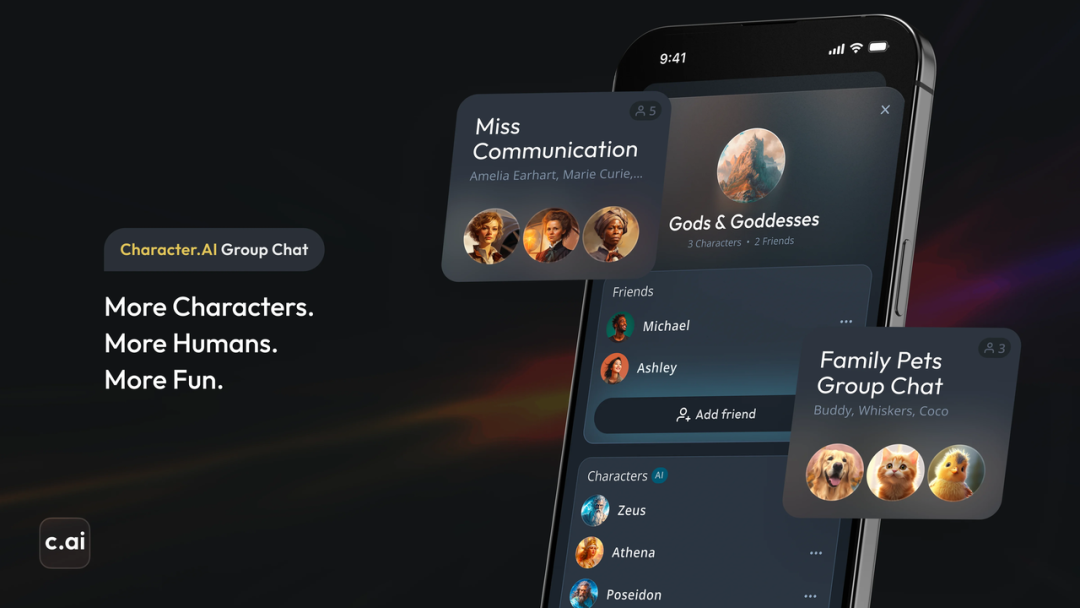Introducing character AI in therapy sessions is a groundbreaking departure in the area of mental health treatment. Built on deep learning (and even more importantly, on empathetic algorithms,) these AI systems are not merely tools, they are therapeutic process partners, providing continuous, non-judgmental assistance and creating novel ways of engagement of the patient.
Improving Usability and Uniformity
Features like tech that provide Character AI help in therapy support to be on 24x7 consistent mode Traditional therapy is limited by practitioner availability and even in different sessions; it may cause different reaction! But therapy AI, meanwhile, offers the reassuring consistency people seek when they are ready to get better. Research also reveals that AI-powered therapeutic tools can also decrease the time that patients need to wait for therapeutic support by up to 90% and that they offer continuous care which not traditional formats can deliver.
Customized Therapy at Scale
That's something these AI characters also have, which can manage large quantities of information to provide identifiably sensical interactions at an individual patient level. For example, AI systems can be trained to identify patterns in the way a patient speaks or behaves that may suggest a change in their state of mind. AI can also provide customised care tailored to individual responses over time by personalising responses and intervention strategies. Recent clinical trials revealed that AI-aided therapy has managed to produce a success range of up to 40% in terms of bettering patient outcomes, particularly in fields related to depression and anxiety.
Creating connections by being personal
Character AI needs to be able to build rapport with personalized encounters (whenever possible). Character AI can elicit answers that feel compassionate, empathetic and sensitive, which are crucial traits when it comes to patient-centered care. This function ensures that patients are not only understood but also more engaged in the therapeutic process. Specifically, research shows that patient engagement with empathetic AI is 35% more than that with standard automated responses.

Destigmatizing and Normalizing
A further advantage to using character AI in therapy is that it can reduce stigma. Due to fear of judgement, therapy is something that many avoid. The Character AI allows patients a safe, more confidential space to express themselves free of judgment. Half again as many people are willing to open up to an AI about some of their darkest, most private feelings as to a human therapist, suggesting these tools can help reveal some uncomfortable truths.
Whether in development or already deployed, Post Implementation Support - Handover to BAU Support.
Character AIs are equally important for the continuous support and surveillance, and help prevent untimely deaths in case of patients with extreme mental health conditions. For example, trends in speech patterns or word choice, among other cues, could be picked up by these AI systems, and notify human therapists to take a closer look to notice if someone is potentially in crisis. Real-time monitoring guarantees that help is there for patients when they need it most and can help reduce emergency incidents by up to 60 per cent.
Issues in Costing and Ethical Concerns
This is because while the advantages are certainly appealing, the use of AI in therapy does raise ethical issues such as privacy and the need for human oversight. It is essential to make these AI Secure and Ethically Compliant use for their successful acceptance in therapy.
Conclusion
Mental health care is being revolutionized by Character AI, supportive consistent, personalized, non-stigmatizing, as in therapy sessions. Such technology is poised to evolve and become more effective and available than ever before in the provision of mental health care. To explore further how character AI could redefine therapy sessions, Take a look at character ai chat.
Character AI is no longer a complementary aid, it is starting to attune with the therapeutic process as new hope and light for patients and therapists alike.